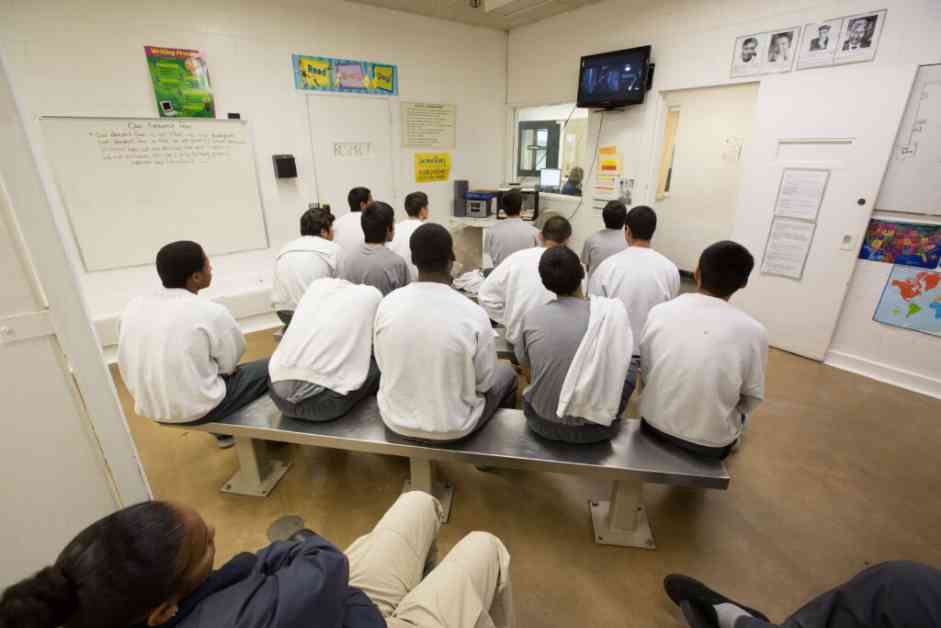Los Padrinos Juvenile Hall in Los Angeles County has been at the center of controversy following a state corrections oversight board’s declaration that the facility is “unsuitable for the confinement of minors.” Despite this, the hall remains open amid ongoing issues with compliance and standards for juvenile facilities.
The situation at Los Padrinos, situated in Downey, southeast LA, has raised concerns due to inadequate probation officers, late student arrivals, poor performance on standardized tests, and heavy reliance on substitute teachers. This troubling scenario prompted a court hearing to determine the fate of the facility, which was postponed until April for a re-inspection by the Bureau of State and Community Corrections (BSCC).
Yasmine-Imani McMorrin, director of education equity at Children’s Defense Fund California, highlighted the importance of providing quality education to youth in detention facilities. She emphasized the need for academic rigor and opportunities for these individuals to be prepared for their future, whether it be through trades, college, or other pathways to become productive members of society.
While recent reports suggest some improvements at Los Padrinos, concerns remain among advocates like Vivian Wong, an education attorney. Wong expressed skepticism about the sustainability of positive changes, citing a history of recurring issues within the facility even after temporary improvements.
Education Justice Coalition’s Advocacy
Amid these challenges, groups like the Education Justice Coalition have emerged to advocate for the release of youth from detention facilities and to promote high-quality education for those remaining inside. The coalition, formed in 2020, strives to address the pressing needs of detained youth, emphasizing the importance of community-based solutions.
Wong emphasized the significance of prioritizing community-based alternatives over detention for young individuals, underscoring the need to question the rationale behind incarcerating youth when essential resources are lacking.
Challenges and Progress at Los Padrinos
Since its reopening, Los Padrinos has faced allegations of violence incited by probation staff and concerns about inadequate programs, including limited access to education. The facility was expected to offer relief after the closure of other problematic juvenile halls in the region, yet persistent issues have marred its reputation.
The challenges at Los Padrinos extend to educational outcomes, with assessment results revealing significant deficiencies in English and math proficiency among students. The need for urgent intervention in reading and math further underscores the ongoing struggles faced by youth in the facility.
Erin Simon, associate superintendent at the county’s office of education, highlighted efforts to improve reading levels through intervention programs like Read180. She acknowledged the complex needs of students, including mental health and trauma, necessitating targeted interventions to support their academic growth.
As Los Padrinos continues to grapple with staffing shortages and reliance on substitute teachers, concerns persist about the impact on students’ educational experiences. The fluctuating presence of teachers poses challenges for building relationships and maintaining consistency in instruction, particularly for students with unique learning needs.
In the midst of debates about the facility’s future, advocates stress the importance of prioritizing the well-being and educational development of youth at Los Padrinos. McMorrin emphasized the critical role of preparing young individuals for the world, emphasizing the irreplaceable nature of their formative years and the need to provide them with the necessary tools for success.
The fate of Los Padrinos remains uncertain as stakeholders await the results of the latest BSCC inspection. Regardless of the outcome, the focus on improving conditions and educational opportunities for youth in detention remains a top priority for advocates and policymakers alike.
